Navigating the choppy waters of financial planning can be daunting, especially when it comes to reverse mortgages and estate planning. As a Vancouver family, you've probably heard of these terms but might not fully grasp their implications.
Do you know how a reverse mortgage could affect your estate plan? Could it be the missing piece in your financial puzzle or a stumbling block on your path to financial security? Let's shine a light on this intriguing subject and unravel the mystery together.
Key Takeaways
- Reverse mortgages can impact estate value, potentially affecting inheritance for Vancouver families.
- Loan terms and interest rates may significantly influence the family's financial future.
- Local real estate trends and property value fluctuations can affect reverse mortgage equity.
- Professional financial advice is crucial to align reverse mortgage strategy with personal objectives.
Understanding Reverse Mortgages
Let's delve into the concept of reverse mortgages, a unique financial tool that allows homeowners, primarily seniors, to leverage their home equity without having to sell their property. This financial instrument isn't a one-size-fits-all solution and relies heavily on specific eligibility criteria and repayment terms.
Firstly, the eligibility criteria. You must be at least 62 years old, and the property must be your primary residence. Additionally, any existing mortgages or liens should be low enough that the reverse mortgage can pay them off. Your financial ability to pay property taxes, insurance, and maintenance costs are also assessed.
The repayment terms are crucial as well. Unlike traditional mortgages, you're not required to make monthly payments towards the loan balance. Instead, the loan is due when the last surviving borrower dies, sells the home, or no longer uses it as their primary residence. However, if you fail to meet the obligations such as paying property taxes or insurance, the lender can ask for repayment.
Understanding these concepts can help you decide if a reverse mortgage fits into your financial plan. Remember, it's important to always consult with a knowledgeable financial advisor before making such significant decisions.
Benefits of Reverse Mortgages
Having grasped the essence of reverse mortgages, you might find it beneficial to explore the advantages this financial tool offers, especially for senior homeowners.
Firstly, reverse mortgages are an excellent route to financial independence. They allow you to tap into the equity of your home, providing you with a steady stream of income. This financial freedom can grant you the ability to cover your daily expenses, handle any unexpected costs, or even fund your travels.
Secondly, reverse mortgages come with notable tax advantages. The money you receive from your reverse mortgage is considered loan proceeds, not income, thus it's not taxable. This benefit can significantly increase your net monthly income, giving you more financial flexibility.
To truly appreciate the benefits of reverse mortgages, consider the following:
- You maintain ownership of your home, ensuring your sense of security and belonging.
- You can leverage your home's value without needing to sell, preserving family wealth.
- Tax advantages and financial independence can enhance your quality of life in retirement.
Risks and Drawbacks
While reverse mortgages offer numerous benefits, it's crucial to recognize their potential risks and drawbacks to make an informed decision.
One major concern is the possibility of potential scams. Unscrupulous lenders or third-party companies might take advantage of your situation, presenting misleading terms or hidden fees. Always do your research, ensure the lender is reputable, and have a legal representative review the agreement before signing anything.
Interest rates are another key factor. Reverse mortgages typically have higher interest rates than traditional mortgages. This can rapidly increase the loan balance, diminishing the equity in your home over time. It's crucial to understand how interest rates will impact your loan balance and the eventual payout you or your estate will receive.
Additionally, defaulting on a reverse mortgage can have serious consequences. If you fail to meet the terms of the loan, such as paying property taxes or maintaining homeowners insurance, your lender may foreclose on your home.
Reverse Mortgages in Estate Planning
After understanding the potential risks and drawbacks of reverse mortgages, it's equally important to consider how these loans fit into your overall estate planning strategy. The legal implications and tax considerations of a reverse mortgage must be carefully weighed.
- Legal implications: Reverse mortgages could complicate your estate planning by reducing the total value of your estate, thereby affecting the inheritance of your heirs. It's crucial to have a clear understanding of the loan terms and conditions, and how they might affect your family's future.
- Tax considerations: The money received from a reverse mortgage is typically tax-free, but it can potentially impact your eligibility for certain government benefits. Additionally, the interest on the loan isn't tax-deductible until it's repaid, usually upon sale of the home.
- Estate implications: Your home, often your largest asset, is tied up in the loan, potentially leaving less for your heirs. However, you can still will the home to your heirs – they just need to pay off the reverse mortgage.
Before you decide on a reverse mortgage, ensure you've considered these vital aspects. A consultation with a financial advisor or attorney can provide valuable insights.
Tailoring Your Strategy in Vancouver
In light of the unique real estate market in Vancouver, it's essential to tailor your estate planning strategy, particularly when considering a reverse mortgage. Understanding Vancouver's real estate trends is crucial. The city's market has seen unprecedented growth and high property values. A reverse mortgage may allow you to tap into this equity, but it's crucial to assess the implications on your estate.
You'll need to consider tax implications, as a reverse mortgage can affect your tax situation. The money received from a reverse mortgage isn't taxable, but it could impact means-tested benefits you're receiving. Additionally, remember that interest accumulates over the life of the loan and must be paid back, potentially reducing your estate's value.
It's also essential to think about the housing market's future. If property values fall, your equity could decrease, impacting the reverse mortgage's value. A tailored strategy should factor in these market dynamics, tax considerations, and your estate's long-term goals.
Working with a knowledgeable financial advisor is advisable. They can help you navigate Vancouver's complex real estate market, ensuring your strategy aligns with your personal and estate planning objectives.
Frequently Asked Questions
How Does a Reverse Mortgage Affect My Eligibility for Government Assistance Programs?
If you're considering a reverse mortgage, it's vital to know how it could impact your eligibility for government assistance programs.
For instance, a sudden increase in your income from the mortgage could potentially change your financial status, affecting your eligibility for certain programs.
It's important to consult with a financial advisor who understands the nuances of these program eligibility changes before making such a significant decision.
Can I Get a Reverse Mortgage if I Have an Existing Home Equity Line of Credit?
Yes, you can get a reverse mortgage if you have an existing home equity line of credit. However, it's important to understand the credit implications. The reverse mortgage must be in first lien position, meaning any existing mortgages must be paid off.
Also, consider the repayment conditions. You don't have to make payments on a reverse mortgage until the home is sold or the last borrower passes away, unlike a traditional line of credit.
How Does the Interest Rate on a Reverse Mortgage Compare to a Traditional Mortgage or Home Equity Loan?
The interest calculations for a reverse mortgage can be higher compared to a traditional mortgage or home equity loan. Rate fluctuations also impact reverse mortgages differently.
With a reverse mortgage, you're not making monthly payments, so the interest compounds over time. It's essential to understand these differences and how they can affect your long-term financial situation before deciding on a reverse mortgage.
What Happens if the Value of My Home Decreases After I Get a Reverse Mortgage?
If your home's value decreases after securing a reverse mortgage, don't fret. Home depreciation impacts won't affect your loan balance. You'll still owe what you borrowed.
Reverse mortgage risks, such as falling home prices, are absorbed by the lender, not you. Even if your home's worth dips below the loan amount, you'll never owe more than the home's value.
Are There Alternative Options to a Reverse Mortgage That I Should Consider for My Estate Plan?
Absolutely, you've got other options to consider for your estate plan. Life Insurance Policies can offer a lump sum payout to your beneficiaries, ensuring they're financially secure.
Annuity Options provide a steady stream of income during retirement, which can be a great alternative.
Consult with a financial advisor to explore these options and find what best suits your needs. It's important to look at all possibilities before making a decision.

